Improvements in rainfed systems have the potential to improve agricultural production, increase water productivity and lift millions of farmers, particularly in Africa, out of poverty.
The Rainfed Systems Strategic Research Portfolio (SRP) workshop of the CGIAR Research Program (CRP) on Water, Land and Ecosystems took place in Nairobi from June 12 to 14, 2012.
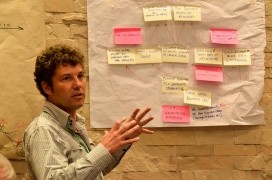 Lieven Claessens (ICRISAT) explains the theory of change. Nairobi, June 13, 2012.
Lieven Claessens (ICRISAT) explains the theory of change. Nairobi, June 13, 2012.Photo: Neil Palmer
This SRP, led by Deborah Bossio (CIAT) is by far the largest of the five SRPs with the overall collaboration of 11 centers. The research activities within this SRP focus on degraded and degrading landscapes where the sustainability of people’s livelihoods is constrained by both access to, and the condition of, natural resources.
Defining the scale at which the program would work was a first step. There was general agreement on a landscape approach that is ‘multi-functional’, which meant that it encompasses the people and the resources they use as well as the institutions that govern them. Landscapes are viewed as the integrative factor. Workshop participants also defined ‘landscape diversity’ to include diversity in human interest, livelihood systems and ecosystems. ‘Landscape variability’ was defined in space and time including variability in rainfall, soils, markets, species, productivity, etc.
The SRP also focuses on the crosscutting theme of ecosystem services - the resources and benefits that people obtain from ecosystems. Looking up and down scales from the ‘landscape’ and linking these scales will be a key strength of this SRP as well as the overarching CRP. We need to link ecosystem services to poverty alleviation. Food provisioning services will be a critical entry point when looking at the role of ecosystem services and how they influence livelihoods. The valuation of ecosystem services is a recent theme that has re-emerged in the wake of the Rio+20 Conference where the concept of ‘green economics’ has been introduced as being the way forward in achieving sustainable development.
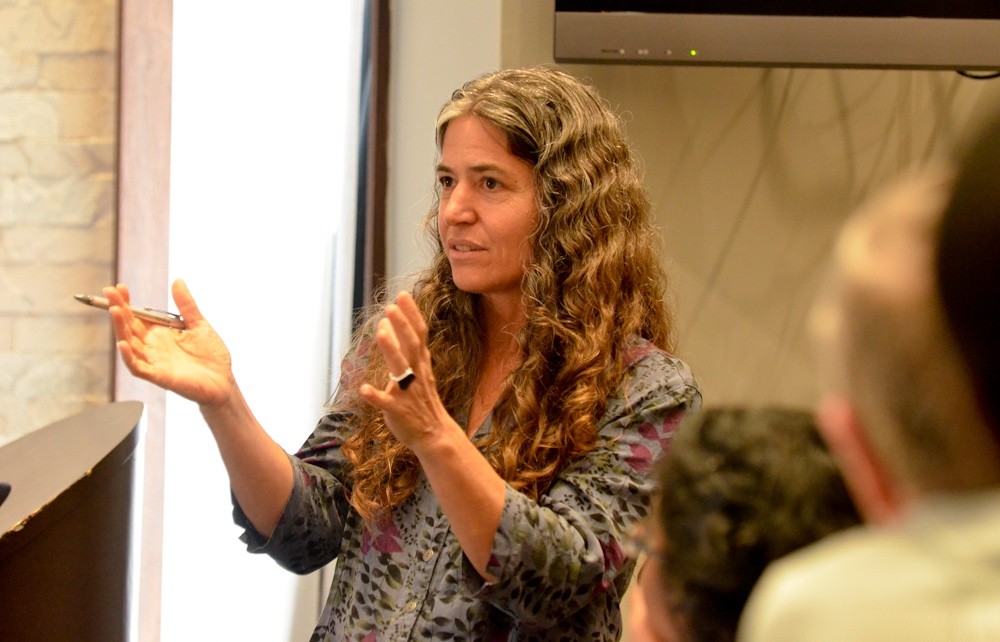 Deborah Bossio (CIAT; Rainfed Systems SRP leader) wraps up the 3 day workshop and discusses the next steps for this SRP. Nairobi, June 14, 2012. Photo: Neil Palmer
Deborah Bossio (CIAT; Rainfed Systems SRP leader) wraps up the 3 day workshop and discusses the next steps for this SRP. Nairobi, June 14, 2012. Photo: Neil Palmer
All participants also agreed that developing tools and metrics to help key stakeholders identify where to place interventions would be one of the outcomes of this SRP. Policy analysis, the development of institutional incentives through a better understanding of cultural attitudes, and the identification of ecosystems as well as the value that they provide to people within that landscape are all essential components that need to be assessed when developing such tools and metrics. Understanding both environmental and social trade-offs among various options is another important area for research.
The CRPs are designed to achieve System Level Outcomes (SLOs) - poverty reduction, increased food security, reduced malnutrition and the sustainable management of natural resources. Research components within the CRP on Water, Land and Ecosystems need to align their contributions with this much larger effort. An effective way of achieving this would be to ensure that complementarities and key strengths of the various CRPs can be effectively exploited towards our larger common goals. Many discussions centered on developing a concrete understanding of how and where various CRPs could work together. Partnerships are an important part of achieving outcomes and participants agreed to take a more strategic approach to support their agenda.
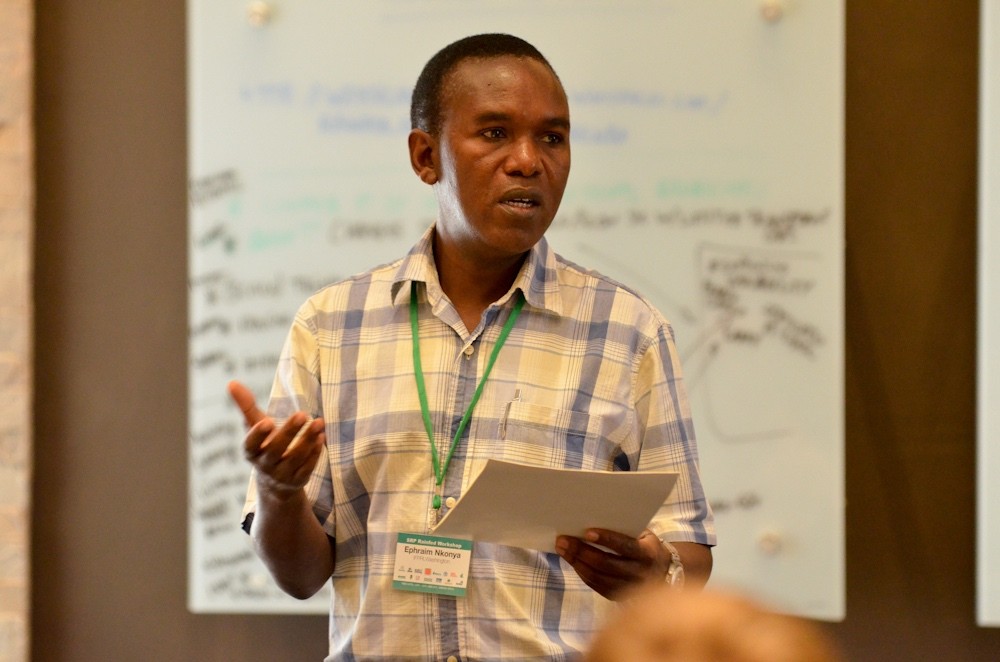 Ephraim Nkonya (IFPRI) talks about the policy perspective and the connections between CRP 2 and the CGIAR Research Program on Water, Land and Ecosystems
Ephraim Nkonya (IFPRI) talks about the policy perspective and the connections between CRP 2 and the CGIAR Research Program on Water, Land and Ecosystems
Problems cannot be viewed in isolation anymore. A collaborative effort that harnesses our strengths and experiences is required in order to feed the world without wrecking the planet and restoring the environment. In order for such an effort to succeed, we also need to include the people whose livelihoods we are trying to improve. So, the issue is not just technical but also political. We need to create incentives that will bring about behavioral change within institutions. To do this, we will need to strengthen partnerships not only within the CGIAR network but also within external networks which include policymakers, governments, private industry and development organizations.
What were your thoughts on the workshop? Ineffective institutions were identified as being one of the challenges that we face. How do you think that the Rainfed Systems SRP can tackle this issue? What types of incentives should we design?
For a summary of the workshop and its outcomes, visit the Water, Land and Ecosystems wiki



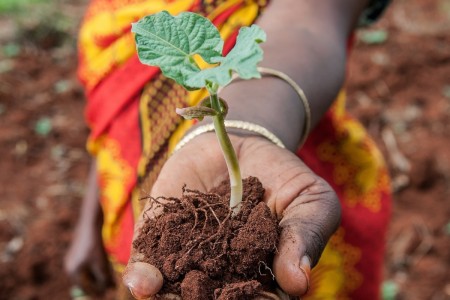

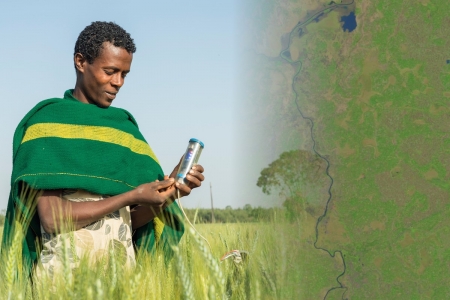


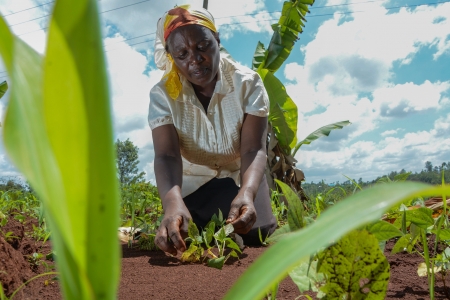





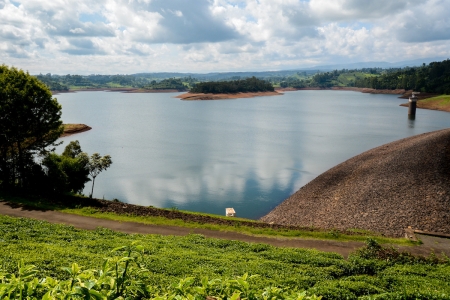
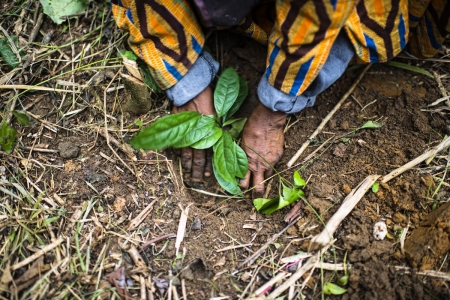

Comments
Thanks for the wonderful article it has really helped me. You efforts putting this blog together was worth the while. Congratulations again on a good job Water.